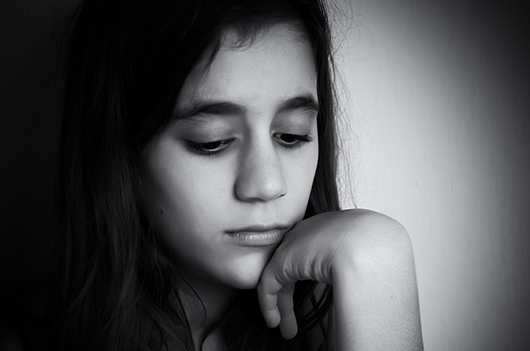
In the wake of Dylan Farrow’s explosive open letter detailing sexual abuse at the hands of her adoptive father, director Woody Allen, the allegations seem to have arrived at the same stalemate they did back in 1992, when the shocking scandal first came to light. Allen has denied any wrongdoing, and claims that the then 7 year old Dylan was brainwashed by her mother, Mia Farrow, into thinking that the abuse was real. Mia Farrow has maintained all along that the abuse happened and for the first time, Dylan Farrow, now an adult, has shared her memories of the abuse. Prosecutors at the time were unsure they had enough evidence, and Allen was never charged with abuse.
Read Related: Keep Your Child Safe From Predators
Still, Dylan Farrow’s honest and raw account of the abuse, and how deftly, according to her, her abuser hid it from her mother, brings home many parents’ worst fears. If your child was being sexually abused, how would you know? What are the warning signs of childhood sexual abuse?
Experts note that physical signs of abuse are rare, but include signs of physical trauma to the genitals, mouth or anus, painful urination or defecation, or symptoms of genital infection.
Parents need to be aware of the more subtle signs of sexual abuse, as demonstrated in the behavior of the child. These include:
- Bed wetting or thumb-sucking as a new behavior, or demonstrating regressive behavior that is too young for his or her stage of development.
- Nighttime sweats, screaming or nightmares, or panic attacks during waking hours.
- Aggression towards family members, pets and toys.
- Imitating sexual behavior with toys, friends or pets.
- Showing new, persistent interest in his or her own genitalia and that of parents, siblings, friends.
- New terms for private body parts and excessive touching of genitals.
- Reluctance to get undressed, even at bathtime or to put on pajamas.
- Fear of a specific place in the house or another location, and fear of being alone with certain adults or older children.
If you suspect your child has been sexually abused or your child tells you that abuse has occurred, the most important thing is that you stay calm, believe your child, and assure her that you will protect her from further abuse. Contact your local hospital, police, family doctor or social services agencies for advice on how to deal with the alleged abuse, protect and support your child and prosecute the abuser.
The links below provide strategies and resources for preventing abuse, identifying abuse and helping your child through the trauma of sexual abuse.
– Family Watchdog
– Stop It Now!
– National Center for Missing & Exploited Children
– Protect Kids












